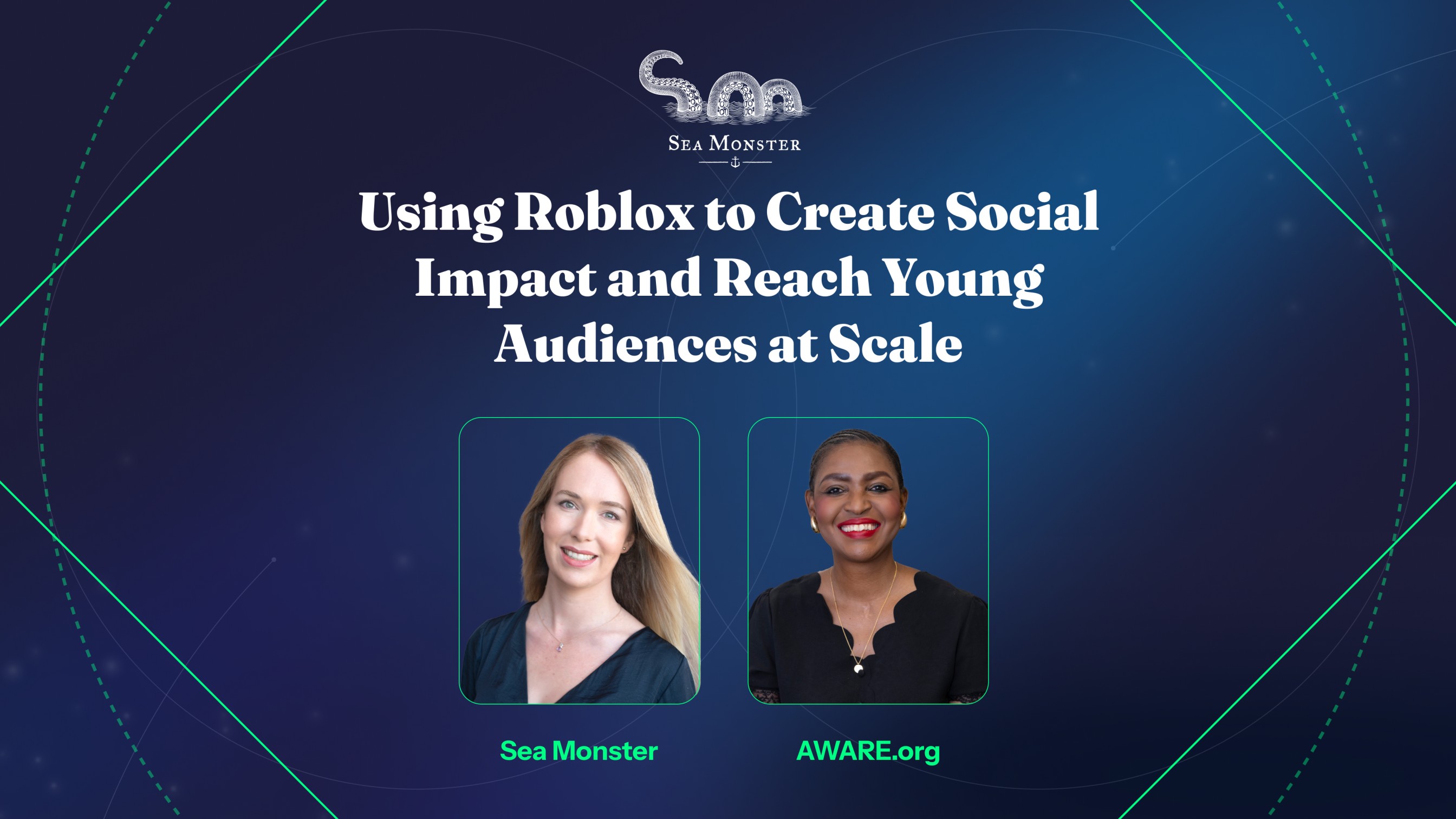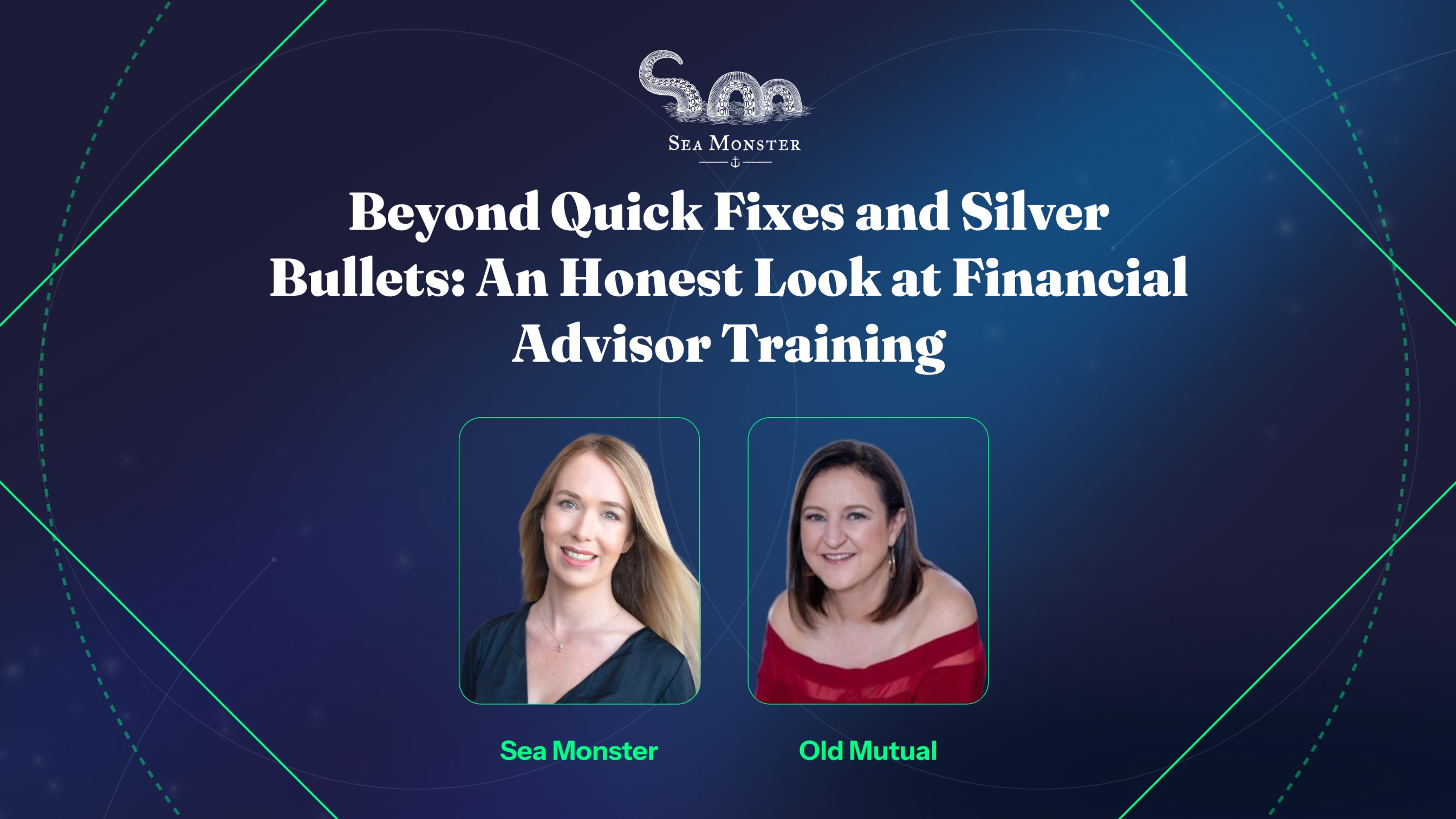HIV still poses a threat, but many young people no longer see it as an immediate risk. To shift this mindset, we need to meet them where they are, through play. Serious games allow us to tackle tough topics in a way that feels relevant and engaging. By making HIV awareness part of a game, we spark conversation and create lasting impact in an effective way.
HIVSA approached us to do a game for one of their pilot projects called Choma, which is an online magazine for girls between the ages of 15 and 19. They needed a fresh take in creating awareness around a very sensitive topic, and we feel that we have created this in a fun yet educational manner. Jade Duckitt was the lead game designer on the project, and we chatted to her about the process of making such a game.
How did the idea for this game come about?
Sea Monster was approached by HIVSA in the hopes that we could advise them on making a serious game for the purposes of helping them further their aims in HIV awareness and prevention. HIVSA runs multiple projects, one of their most prominent being Choma ( choma.co.za)
What was the motivation for the making the game?
It’s 2015 and HIV and AIDS have been on our radar for a good many years. There has been a lot of funding put into creating awareness, making sure people are using condoms, taking ARV’s and making sure people are taking the necessary steps to protect themselves. Research is now showing, however, that people feel less at risk of contracting the disease than they did 5 years ago. My personal opinion is that people have become desensitized and stopped paying attention. There is a misconception, particularly in different social classes, that “it can’t happen to me”, which of course is far from the truth.
How did knowing influence your decisions when making the game?
We saw that clearly the current marketing campaigns aren’t working. With teenage girls that we interviewed especially, none of them feel like they are at risk, but they are the age group that are most at risk for getting new infections.
So where did the idea come from?
We had to sit down and think about what we could do to help solve this problem. So HIVSA came to us and said, “What about a game?”If you aren't involved with game design it may at first seem like something quite strange, like, “Wait? You want fight HIV with a game?” It’s not your intuitive response for a social issue of this magnitude. However, the one great thing we find about games is that they really engage you more deeply and for a longer time than most forms of media. You can't be playing a game and doing something else, you have to be completely focused. If you stop paying attention, you lose.
We needed to make a game that was not too explicit, cheesy, or preachy. The game had to harness the player’s undivided attention and build a mechanic that echoes the challenges that they might be facing in their real life. In the game, you have a goal, your dreams that you want to achieve, and your obstacle is HIV. The rule is that this is the reality - if you sleep with someone without using protection, there is a chance that you will get infected. If you do get infected, that is going to influence your life. However, in real life it is so difficult to see the immediate impact of your actions. You might be caught up in the stresses and craziness of life, and then the consequences only really affect you in 5 years when you realise you have tested HIV positive.
What a game can do is make those consequences happen much more quickly. You may take a risk, but when a risk doesn't pay off, the consequences are immediate. Thus, the risk seems much more real. If people walk away with the sense that its actually much easier to contract HIV than they thought, then I feel like we have really achieved our objective.Other obstacles that can delay you reaching your dreams in real life are things like drug and alcohol abuse. We represented this in the game by using a mechanic that causes the controls to be very sensitive (and therefore difficult to control) after you “drink” some alcohol. A consequence of this could be that you run into (sleep with) a lover that you didn’t mean to, or don’t put on a condom in time. These scenarios are the kind that get players to say funny, yet poignant, things like: “I didn't mean to sleep with that person but I drank those beers and things got out of hand!”
Why would you call Choma a “Serious Game”?
The definition of a serious game is a game that is designed with a purpose, more than just entertainment. In this case we aimed at educating our target market and conveying a sense of risk. The main challenge was how to convey this very big concept and also make the game work. It should be entertaining to play, but its never going to be as entertaining as something designed for entertainment’s sake.There are a lot of big issues that we want to portray, so how do we do that without making it overly complicated or make it feel like a school course. It will really be interesting to see how people respond. One thing that was to our advantage is that it is being hosted on Choma’s website, which means it can facilitate conversations and girls can talk about the game on the Choma forums as a shared experience, and draw conclusions together as a group. Some testers asked why we added the option of choosing custom dreams.
The answer is that we wanted people to be reminded of their aspirations, to realise that it is easy to get caught up in the social pressures of life and forget those things that are important to them. Forcing people to choose their goals right at the start takes the game into a very personal context. It is essentially what is at stake with the risk of this disease, even when you don't realise it.
Technical challenges:
The whole idea was to test how capable smart phones would be for this kind of social project, before most of our target market actually has smart phones. We needed to see, in those who do have smart phones, if it has any effect. To see if we can reasonably assume that once people do get increased access to smart devices, that they could be impacted by these sort of marketing projects. We wanted something that could run on iOS and Android as well as desktop computers with an internet connection, so coming up with a game control system that works really well on mobile but is also playable on desktop is tricky. The mobile version uses the accelerometer, which means that as you tilt the phone you are controlling the character, but on a computer, you can't tilt your computer screen! So we made a version where you use the arrow keys instead.
Another challenge was the different levels in player skill. There are some people who have grown up playing games and have certain expectations, then there are people who have never played games before. So the question was how do we cater to everyone without making it too easy or too difficult. Ideally something starts off easy and catches everyone, but will still provide a rewarding experience that could challenge the more hardcore gamers the further they get.The different characters had to look right because in South Africa you have literally all the colours of the rainbow represented so it was very important that the game was inclusively designed. Things like different types of skin tones, hair colours and textures took up a lot of our tech development time.
We created a system where you can choose your character by picking your skin colour off a continuous gradient, so that there is no particular box that you need to fit in.What went right?When people are saying things that would make them think twice. Like, ‘I took drugs once and now I can't avoid them’. If that is a conversation starter then we have reached our goal. It is a great thing to be able to actually get people to say stuff out loud without any judgement, because after all it’s just a game.It’s also not game over as soon as you become infected with HIV, that is another key factor. It does become more challenging, like remembering to take your ARV’s more regularly, but if you do that then there is no reason why you can't achieve the exact same goals as an HIV negative person.It also gives you room to make your own judgements, as the game is not imposing a moral code. It is giving the space to explore different types of behaviour without having the actual real life consequences.


.svg)
.svg)






.gif)
